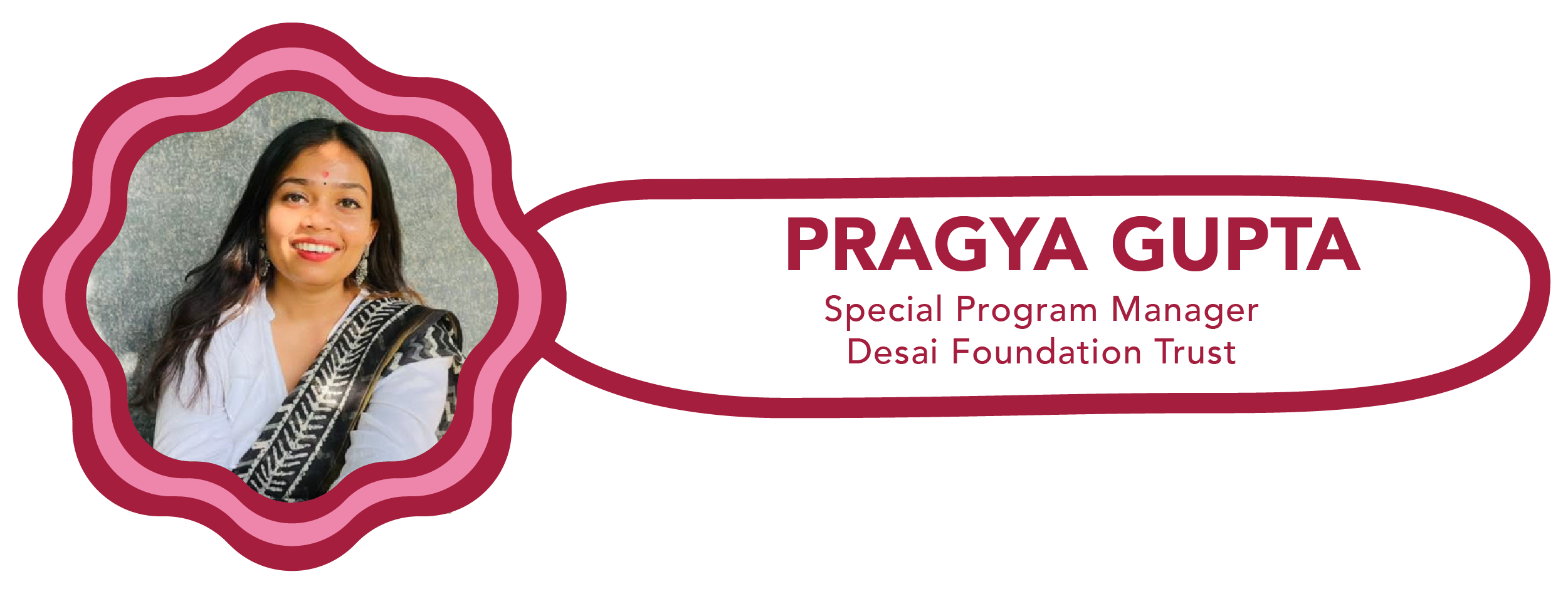Save your spot now!
Shifting the Narrative: The transformative impact of MHM Education
Join the Desai Foundation in celebrating Menstrual Hygiene Month with a virtual panel on access & action for menstrual equity!
We're kicking off the #PledgeYourPeriod campaign by inviting those who have been leading voices in the Menstrual Equity movement to speak on menstrual health, celebrate menstruators by telling their stories, and discuss how we can break stigmas by shifting community mindsets, media, and policy!
NOTE: The link to the virtual panel will be shared prior to the event.
Please register above to ensure you receive the link.
Dr. Charis Chambers is a board certified OBGYN, and specialty certified Pediatric & Adolescent Gynecologist. She grew up in Phenix City, Alabama where she attended middle and high school. She's a proud alumna of Spelman College where she majored in biology, served as the 1st attendant to Miss Spelman College, and became a member of the Mu Pi chapter of Alpha Kappa Alpha Sorority, Inc. She graduated Magna Cum Laude from Spelman in 2010 with a degree in Biology. She completed medical school at the University of Alabama in Birmingham, followed by OBGYN Residency at Greenville Memorial Hospital where she was inducted into the prestigious medical society of Alpha Omega Alpha. She did her fellowship training in Pediatric and Adolescent Gynecology at Baylor College of Medicine, graduating and beginning work as a practicing physician in 2020. She launched her social media platform, The Period Doctor, in the summer of 2019, after recognizing an unmet need for medically accurate reproductive health information and minority physician representation in social media outlets. Since then, she has been featured on national television as well as in digital media and print publications as a medical expert. Her platform now yields millions of views per month with over 246,000 followers.
Sharra Vostral holds an appointment as Assistant Dean of Research in the School of Communication, and Professor of Instruction in Communication Studies. She is the author of Under Wraps: A History of Menstrual Hygiene Technology (Lexington, 2008) and Toxic Shock: A Social History (NYU Press, 2018). She co-edited Feminist Technology (University of Illinois Press, 2010) and The Politics and History of Menstruation: Contextualising the Scottish Campaign to End Period Poverty (Open Library of Humanities, 2022).
She was a fellow at the Center for Advanced Study at the University of Illinois, and the Illinois Program for Research in the Humanities. Awards from the National Science Foundation, and the Mellon Global Midwest initiative of Humanities Without Walls, have supported her research.
She previously held faculty appointments in the Science and Technology Studies Department at Rensselaer Polytechnic Institute, Department of Gender & Women's Studies and Department of History at the University of Illinois, Urbana-Champaign, and the History Department at Purdue University, with affiliations in the School of Engineering Education.
She has appeared in interviews in The New York Times, The Atlantic, Wired, Newsweek, BBC Radio 4, and Le Monde among others. Her current research revisits how stigma is communicated and challenged through menstrual products.
Chris Bobel is professor of Women's, Gender and Sexuality studies at the University of Massachusetts Boston. For more than 2 decades, she has been researching and writing about menstrual activism. Chris is past president of the Society for Menstrual Cycle Research, and she is often consulted by the mainstream media about the rapidly growing menstrual activist movement. Chris is the author and editor of 6 books. Her most are the award-winning The Managed Body: Developing Girls and Menstrual Health in the Global South (Palgrave Macmillan) and The Handbook of Critical Menstruation Studies (Palgrave Macmillan), an open access volume that has been downloaded more than 2.3 million times. Pivoting from menstrual activism, but still fascinated by social movements, Chris is currently at work on a new book exploring contemporary activism inspired by grief and trauma tentatively titled Accidental Activism: Why Grief Becomes Grievance in the Wake of Traumatic Loss.
Pragya Gupta currently serves as the Special Programs Manager at the Desai Foundation Trust, where she leads the Asani Sanitary Napkin program. The program empowers women and promotes menstrual hygiene in 8 states throughout India.
Previously a Gandhi Fellow at the Piramal Foundation Foundation, Pragya collaborated with district administrations in Moga, Punjab, to lead the Anemia Free Moga program in government schools to improve key areas like education, health, and nutrition. She is a menstrual equity advocate and has been creating awareness regarding menstruation in the community for the past 3 years.
Jennifer Weiss-Wolf is undoubtedly a leading voice for equitable menstrual policy in America. She's the author of Periods Gone Public: Taking a Stand for Menstrual Equity: One of the first books to explore menstruation in the current cultural and political landscape! She is the Brennan Center's inaugural Women and Democracy Fellow, and the Founder of Period Equity.
Jane van Dis, MD is an Assistant Professor of Obstetrics & Gynecology at the University of Rochester. She lectures nationally and internationally on the intersection of the climate crisis and women's/maternal health. She Co-Founded OBGYNs For Sustainable Future and TIMES UP Healthcare and Co-Admins OB Mom Group. Dr. van Dis is an Editor at the Journal of OB Hospitalist Medicine and is a single mom to twins.
About the Organizer:
The Desai Foundation/Trust is an organization that empowers women and children through community programming to elevate health, livelihood and menstrual equity in rural India.
Donate Now

Can't attend? Help our cause by supporting our fundraising efforts for menstrual equity.
All funds raised will go directly to our Asani Sanitary Napkin program, which empowers women financially by training them to manufacture and distribute high-quality, low-cost sanitary napkins throughout their communities.








